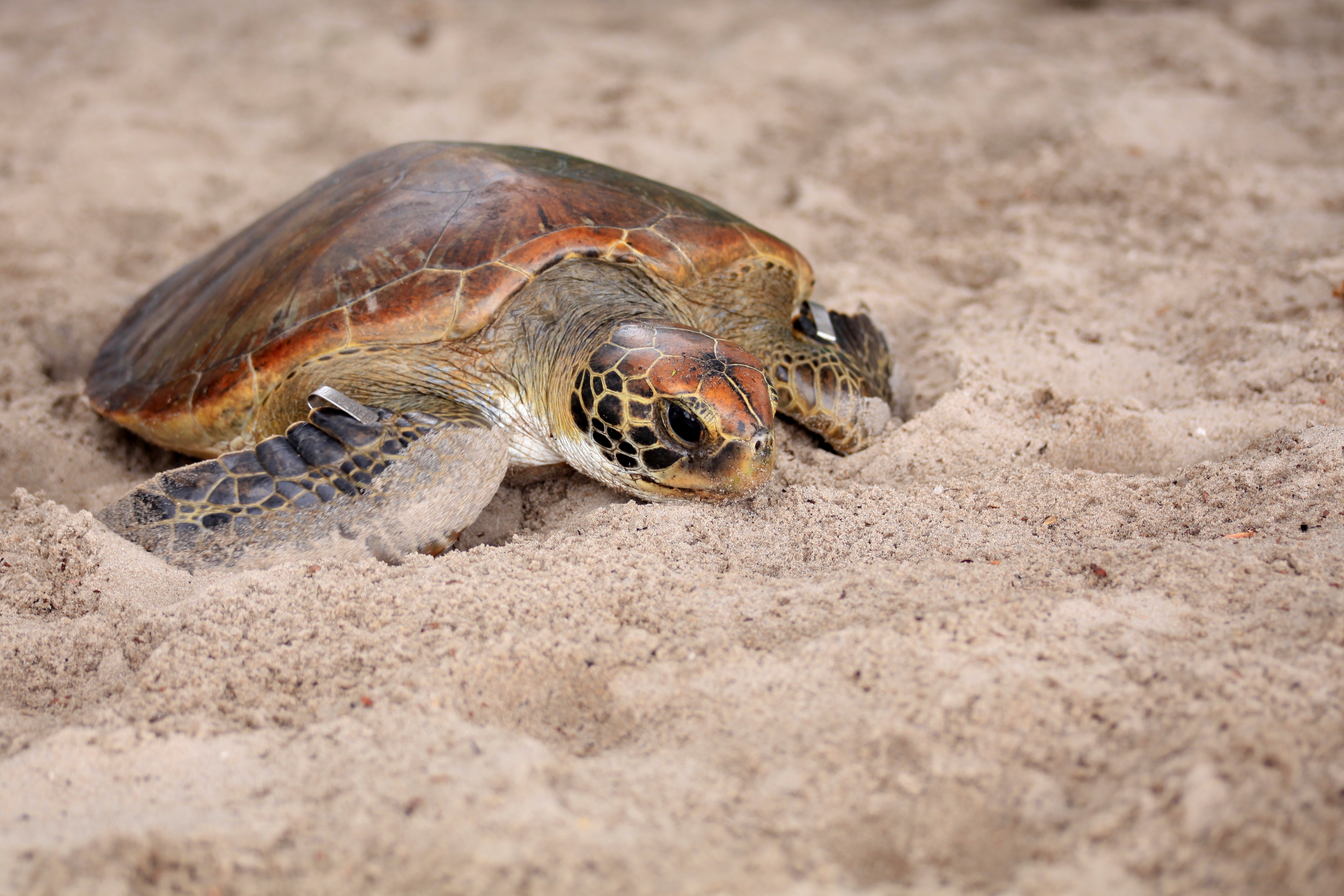- Threatened species conservation
- Bénéficiaire AMMCO - Africain Marine Mammal Conservation Organization
- Montant du projet 89 982 €
- Subventions FFEM 30 000 €
-
État du projet en cours
AMMCO is a dynamic Cameroonian NGO created in 2012 and composed of young researchers that already benefited a PPI funding (PPI 4.1). The main objective of the project was to improve the conservation status of marine mammals and in particular the manatee in Lake Ossa. The innovative aspect of this project was the development of a mobile application for collecting opportunistic observational data to set up a participatory monitoring network.
AMMCO has gradually expanded its activities to protect marine turtles along the coast and is also a member of the RASTOMA, (Réseau des Acteurs de la Sauvegarde des Tortues Marines en Afrique Centrale), which is also supported by PPI. This project will be conducted in the Northern Coastal line of Cameroon from Limbe to Bamusso in the South West Region of Cameroon, (Limbe, Batoke, Bakingili, Idenau, and Bamuso), bordering the Federal Republic of Nigeria.
The coastal line of Cameroon sustains the livelihood of about 9 000 people who rely primarily on artisanal fishing. The oil and gas exploration and exploitation ongoing in the region together with the uncontrolled coastal development (infrastructures and hotels constructions) and overfishing activities is modifying the landscape and causing habitat degradation, pollution, and bycatch of sea turtles and marine wildlife. Aquatic megafauna species present in this region are marine or freshwater animals that weigh over 45 Kg including sea turtles, sharks, dolphins, whales, and manatees. Unfortunately, the increasing depletion of the aquatic megafauna along the coast of Cameroon is driving down its biodiversity and disrupting the ecosystem balance at different levels.
These keystone species are getting depleted by increasing direct and indirect threats including fishing bycatch, intentional hunting and habitat degradation by plastic pollution, mangrove deforestation, coastal urbanization and potential oil spill. Despite the willingness of the government to include species of sharks and cetaceans as protected species, there is a lack of data and documentation of the threats and population trends to support the upgrade of the species legal status. In this region, there are no marine or coastal protected areas established to protect the critical ecological function of the estuaries and the mangroves. Moreover, no policy promoting selective and sustainable fishing techniques is implemented. Consequently, the fish productivity is dwindling and bycatch is becoming a routine. The project aims at contributing to an effective integrated and participative management of the marine and coastal ecosystem of the northern coast of Cameroon to ensure the long-term survival of its megafauna.
In this project, AMMCO set up a baseline socio-biologic and economic framework for the establishment of an improved local governance and land-use planning. The specific goals are to improve the scientific baseline knowledge on marine megafauna and fisheries in the northern coast of Cameroon, to facilitate brainstorming and dialogues at various institutional levels regarding the improvement of the current model of local governance and land-use planning and to enhance the local perception of the aquatic megafauna on the north coast of Cameroon.
